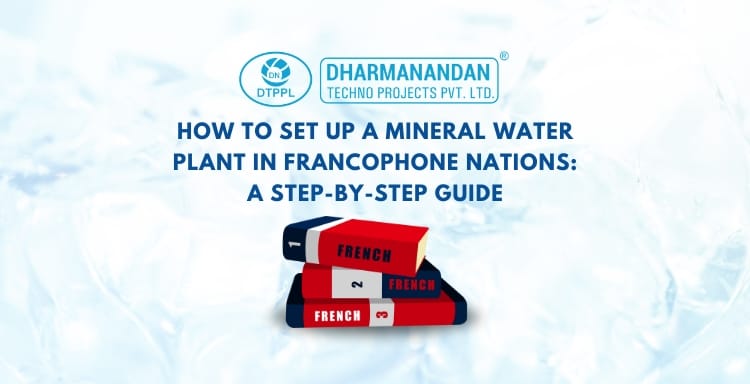
Table of Contents
How to Set Up a Mineral Water Plant in Francophone Nations: A Step-by-Step Guide
February 20, 2025
The bottled water industry is expanding rapidly across the world, and Francophone nations present a mix of opportunities and challenges for entrepreneurs. In some countries, bottled water is a premium lifestyle choice, while in others, it is a basic necessity due to poor public water infrastructure.
Entrepreneurs entering this business must navigate economic landscapes, government regulations, infrastructure challenges, and market competition. While the demand for a packaged drinking water plant is rising, the success of a venture depends on location, investment, and operational efficiency.
This guide provides continent-wise insights into the market conditions while offering a step-by-step approach to setting up a mineral water plant business in French-speaking countries.
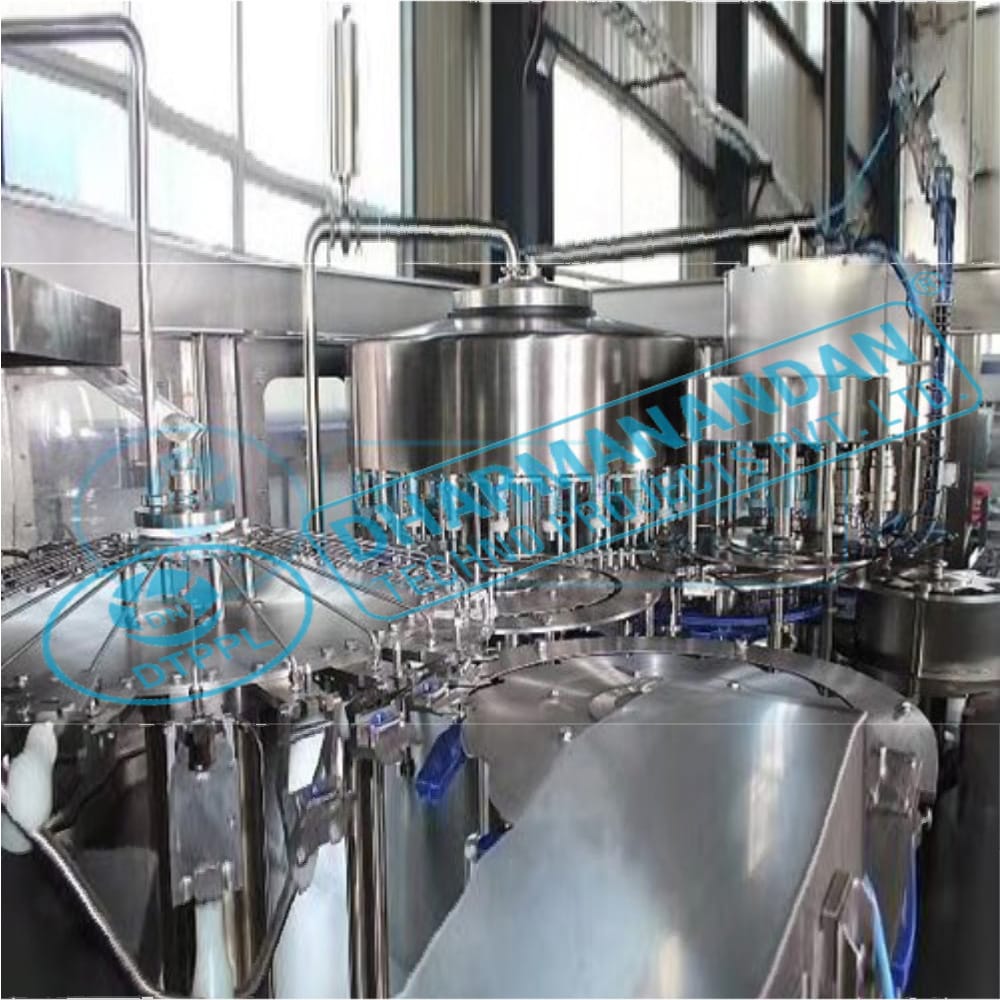
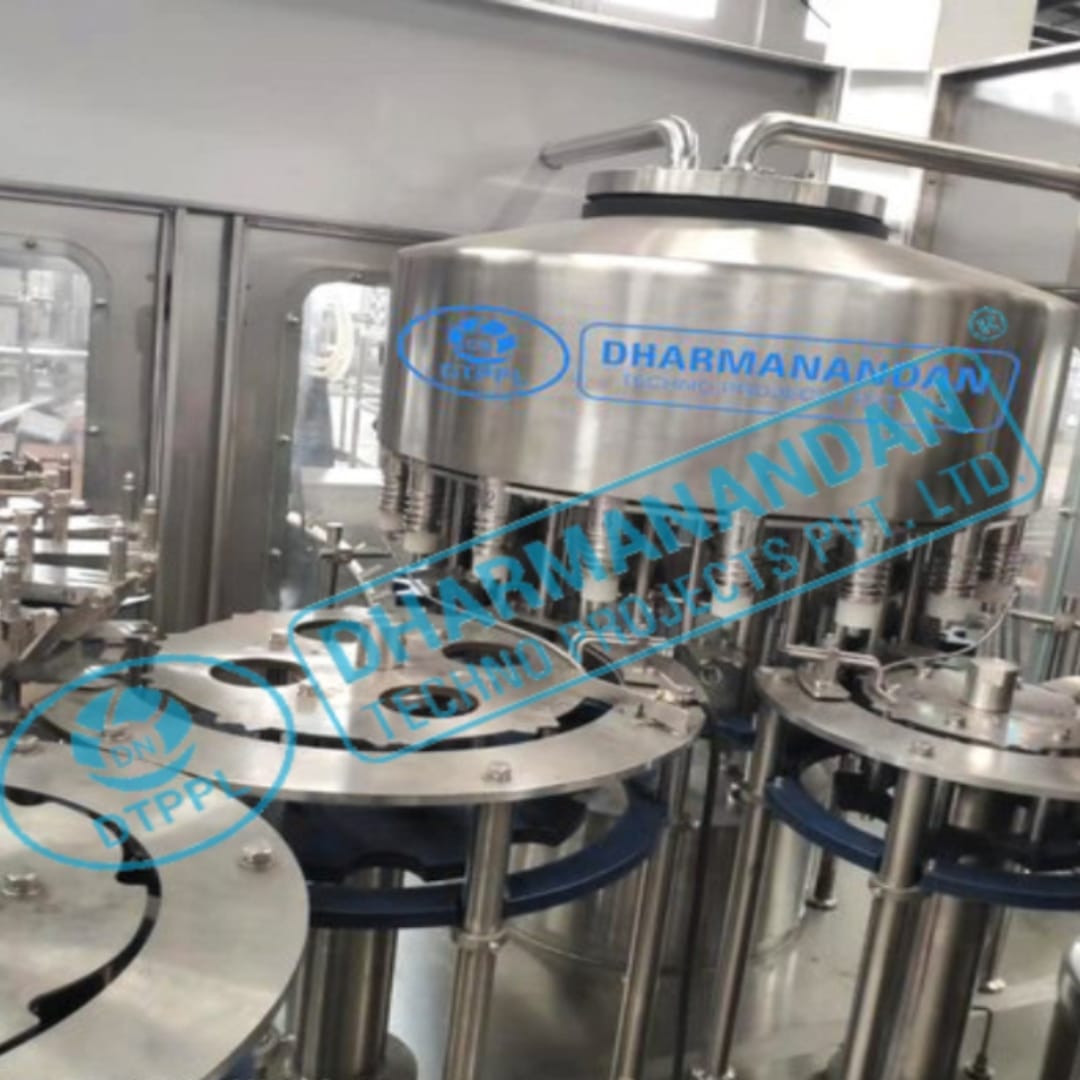
Step 1: Understanding the Market & Choosing the Right Location
Before investing in a mineral water manufacturing plant, an entrepreneur must evaluate the demand, regulations, infrastructure, and economic feasibility of their chosen location.
Francophone Africa
The demand for packaged drinking water in Africa is growing, primarily due to limited access to clean drinking water in several countries. Nations like Senegal, Ivory Coast, Cameroon, Madagascar, and Burkina Faso rely heavily on bottled water for daily consumption. Governments in these countries are actively encouraging private investment to improve access to safe drinking water.
The key challenge is infrastructure. Many regions have unreliable electricity, poor road networks, and limited access to raw water sources. This affects both production and distribution.
The cost of setting up a mineral water plant in Africa is relatively lower compared to Europe and North America. However, businesses must invest in water purification systems, backup power solutions, and logistics infrastructure.
A 20-liter jar mineral water plant cost model is more viable in areas where bottled water in smaller quantities is too expensive for consumers.
Francophone Europe
The bottled water industry in France, Belgium, Switzerland, Luxembourg, and Monaco is well-established and highly competitive. Consumers in these markets demand high-quality, premium mineral water brands with eco-friendly packaging and advanced filtration processes.
Setting up a mineral water plant in Europe requires significant investment due to high land costs, strict regulations, and advanced machinery requirements. Entrepreneurs must focus on premium branding and compliance with EU standards.
Europe also has some of the strictest bottled water regulations, requiring businesses to obtain EU-certified mineral water plant licenses, environmental safety approvals, and food-grade certifications.
Francophone North America
The market in Quebec (Canada) and Haiti differs significantly. Quebec consumers prefer premium, organic, and eco-friendly bottled water, while Haiti relies on bottled water as a basic need due to poor public water infrastructure.
Setting up a mineral water plant in Quebec requires high-end filtration systems, sustainable packaging solutions, and regulatory approvals from the North American health authorities. In Haiti, the focus should be on low-cost, high-volume production models with an emphasis on affordability and distribution efficiency.
Francophone Oceania & the Middle East
Regions like French Polynesia, New Caledonia, and Lebanon have a high dependence on bottled water due to natural water shortages, pollution concerns, and a lack of reliable public water supply.
Island economies require small-scale production models because importing heavy machinery increases costs. Businesses need to strategically source equipment and raw materials to reduce dependence on imports. Tourism, hospitality, and local retail partnerships play a crucial role in ensuring success in these markets.
Step 2: Calculating Investment & Infrastructure Needs
Setting up a mineral water plant requires a detailed investment plan. Major costs include land, infrastructure, water purification systems, machinery, labor, and licensing.
The mineral water plant price varies by location, with Europe and North America being the most expensive, while Africa and the Caribbean offer lower setup costs. Entrepreneurs must carefully plan their budget, considering ongoing operational expenses and local taxation policies.
A mineral water treatment plant is essential for purification. Businesses must also invest in bottling and packaging machinery, such as a mineral water bottle filling machine and a mineral water packaging machine, to ensure production efficiency.
For high-demand regions, a fully automatic mineral water plant is the best choice, while smaller businesses may opt for manual or semi-automatic setups.
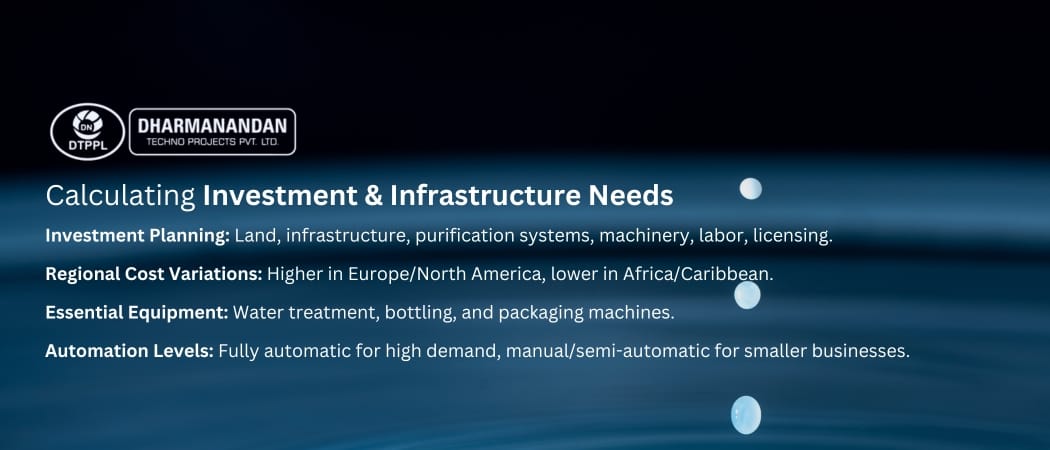
Step 3: Obtaining Licensing and Regulatory Approvals
Securing a mineral water plant license is one of the most complex and time-consuming steps in the process. Entrepreneurs must comply with local health and environmental regulations before commencing operations.
The documents required for a mineral water plant include business registration, environmental impact assessments, health and safety certifications, and water extraction permits. One needs to consider that the European and North American markets follow very stringent regulations.
Hiring a mineral water plant consultant can help streamline the approval process, ensuring compliance with government standards and food safety laws.
Step 4: Setting Up Operations & Handling Challenges
Once the legal approvals are in place, setting up production begins. Location-specific challenges such as infrastructure issues, power shortages, and labor availability must be addressed.
Remote areas, particularly in Francophone Africa and the Caribbean, often experience electricity shortages that can impact production. Entrepreneurs should consider solar-powered energy solutions or backup generators to ensure uninterrupted operations.
Logistics and distribution are major challenges in landlocked countries or island nations. Businesses must build efficient supply chain networks by partnering with local distributors and retailers.
Staff training is essential for ensuring smooth operations. Employees must be trained to handle mineral water bottling plant machinery, quality control processes, and regulatory compliance.
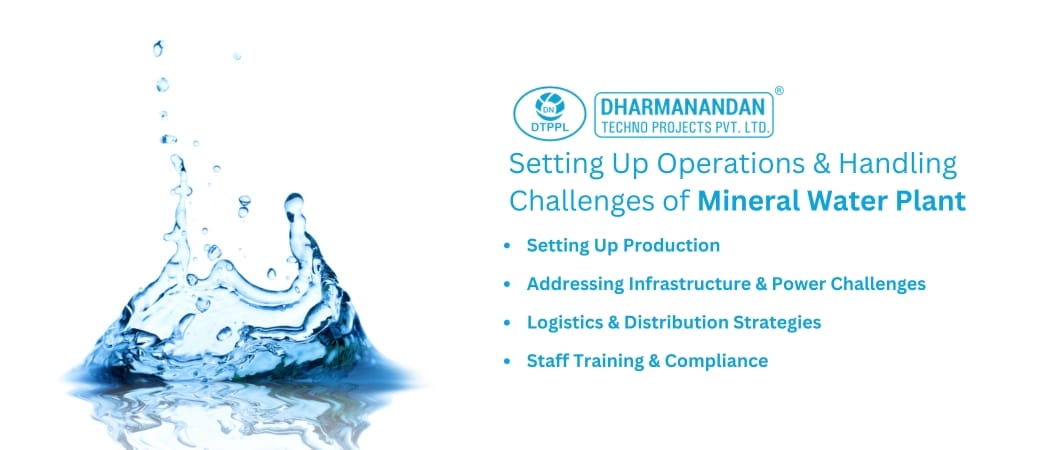
Step 5: Marketing, Branding & Distribution
Branding plays a crucial role in mineral water plant business success, especially in competitive markets like France, Canada, and Switzerland. A strong brand identity, high-quality packaging, and eco-friendly production methods can help differentiate a business.
In Africa and the Caribbean, affordability is a key factor in purchasing decisions. Businesses must focus on competitive pricing, efficient distribution networks, and partnerships with local supermarkets and wholesalers.
For premium markets, positioning the product as luxury, organic, or health-enhancing can attract high-end consumers. In regions where bottled water is a necessity, ensuring wide availability and affordable pricing is the priority.
Retail partnerships, wholesale distribution, and online sales through e-commerce platforms are all important aspects of a successful mineral water business.

Conclusion: Your Path to Success Begins Now
Setting up a mineral water plant in Francophone nations requires a well-thought-out strategy that includes market analysis, investment planning, licensing, and efficient operations management.
Each region presents unique challenges and opportunities, requiring customized business models based on economic and environmental conditions.
With rising demand for safe drinking water and growing consumer awareness of hygiene and sustainability, investing in a mineral water plant is a profitable venture when done correctly.
If you are ready to start, DTPPL is a trusted Mineral Water Plant Manufacturer, offering consultation, high-quality mineral water plant machinery, and affordable solutions for different market segments.
Contact DTPPL today and take the first step and learn how to start a bottled water business!
About Author

Director – Global Marketing and Sales
Mr. Bhavesh from Dharmanandan Techno Projects Pvt. Ltd. has played a pivotal role in elevating the DTPPL brand to the global stage, leveraging his exceptional expertise in marketing and communications. He is committed to helping clients achieve significant growth while strengthening their own brands. Dharmanandan Techno Projects Pvt. Ltd. is a leading manufacturer and supplier of water purification systems and turnkey solutions for mineral water plants. With years of experience in designing and delivering high-quality water treatment solutions, the company provides end-to-end services, including system design, installation, maintenance, and ongoing support. Specializing in scalable and customizable water plants, DTPPL has successfully served industries worldwide, ensuring clean and safe drinking water across diverse applications.




